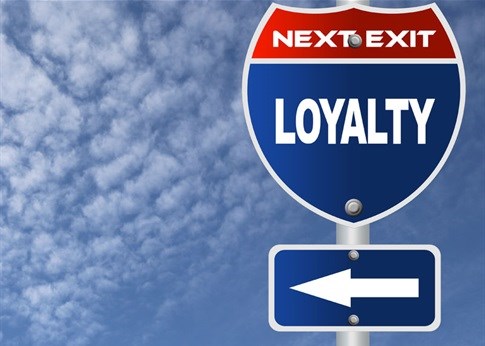Loyalty by another name
For all the flashy points, cash-back and kick-backs, are we happier and more satisfied, and dare we say it, more loyal? Distracted by all the complexities of tiered reward systems, have companies forgotten about the satisfaction built through customer experience?
Visiting Hello Peter, the online customer service reporter, provides some answers. This is a fascinating microcosm of South African attitudes to, and sentiments of, brands that both fail and excel at customer experience.
Customer complaints read like the plot of a Shakespearian play; accusations of betrayal, incompetence, and in some cases, even theft. These (often entertaining) narratives provide a simple reminder of a tenet of market economics - that a successful provider is one that delivers goods and services that meet their customers' needs.
Reading these, I came to two conclusions:
1) The belief that South African customers don't voice their disappointments like their European or American counterparts is a farce. There is a special place where our complaints gather, and it is called Hello Peter.
2) Loyalty should be seen as a consequence of brand building, not purely as a marketing objective.
This second point holds that loyalty - a blend of behaviour and attitude - should be the result of a satisfying consumer experience. Loyalty does not appear magically from issuing loyalty cards, but rather is generated when brands focus on being useful and living up to the expectations of consumers: meet (or don't stop there - exceed) their expectations, create positive interactions, and provide value for their monetary sacrifice, and you will see your shoppers return. As creatures of habit, your shoppers will continue to use your brand because it is not forcing them to work hard to find an alternative.

Clients who announce "we need a loyalty programme to make our consumers more loyal" are under a false assumption that there is a direct road that leads to loyalty. This road often includes a physical (but also increasingly mobile) card and a complex shopper reward system that mostly renders the shopper unconvinced of its value.
But we would caution against setting up this view of loyalty as the Holy Grail. While it can be successful, it cannot work without extensive and well-developed infrastructure and management of customer data.
Rather, first look to continuously please and satisfy your customer through an exceptional customer experience - living up to your brand promise, delivering product and service excellence, staying fresh and compelling and adding genuine value to your shopper's life. McKinsey reports that companies offering an exceptional customer experience can exceed their peers' gross margin by more than 26%. And beyond that, emotionally engaged customers are typically three times more likely to recommend a product and to repurchase it themselves.
We are undoubtedly living in a time where consumer expectations are rising, as is our empowerment. We are all used to using increasingly sophisticated channels, tools and products, and we expect them to work as promised.
Each channel, tool or product provides an opportunity for interaction from the brands we choose - and increasingly, customer satisfaction and loyalty is determined by the complete set of customer experiences across all of these interactions. So, should a consumer interact with a product on shelf, with a floor manager, a call centre employee, or social media page; a brand has multiple micro-interactions (read: opportunities) along the journey with which to impress.
Each interaction along this journey either erodes or builds the perception of that brand in people's minds. Successfully managing this experience journey allows your brand to leave positive triggers in the mind of the buyer. Negative interactions within the journey will do the opposite. And this could erode any loyalty that the brand is trying to build elsewhere (perhaps through a loyalty programme.)
Think of it this way: the allure of multiple shopper points is nullified when I experience the angst and frustration of sitting in an unattended queue. A hostile staff environment or unwelcoming attitude might not warrant my tenth return for that free cup of coffee. A lower, members-only initiation fee won't help when my contract terms aren't honoured.
Where and how do companies start delivering a consistent customer experiences?
At first base, it starts with knowing what matters. Many companies fail at figuring out what their customers want... others seem to know, but are inconsistent in delivering that value proposition.
Evidently, technology has made it much easier for companies to understand customers on an individual basis and perhaps that will be the lasting legacy of a good loyalty programme - the ability to understand what matters to customers, enabling a well-delivered brand experience that gives them a reason to return.
About Krystal Schär
- Loyalty by another name - 10 Jul 2015
View my profile and articles...